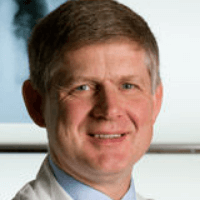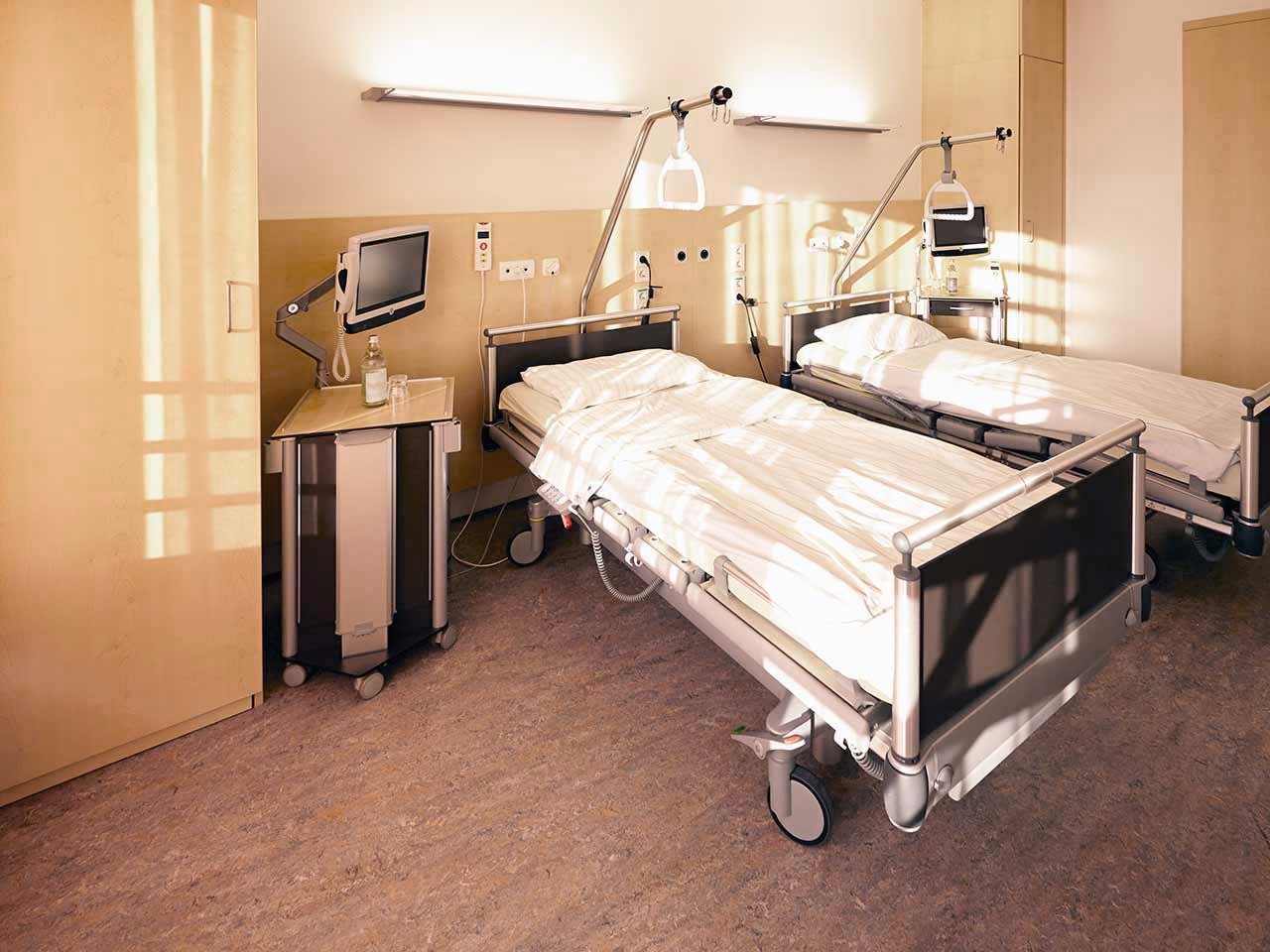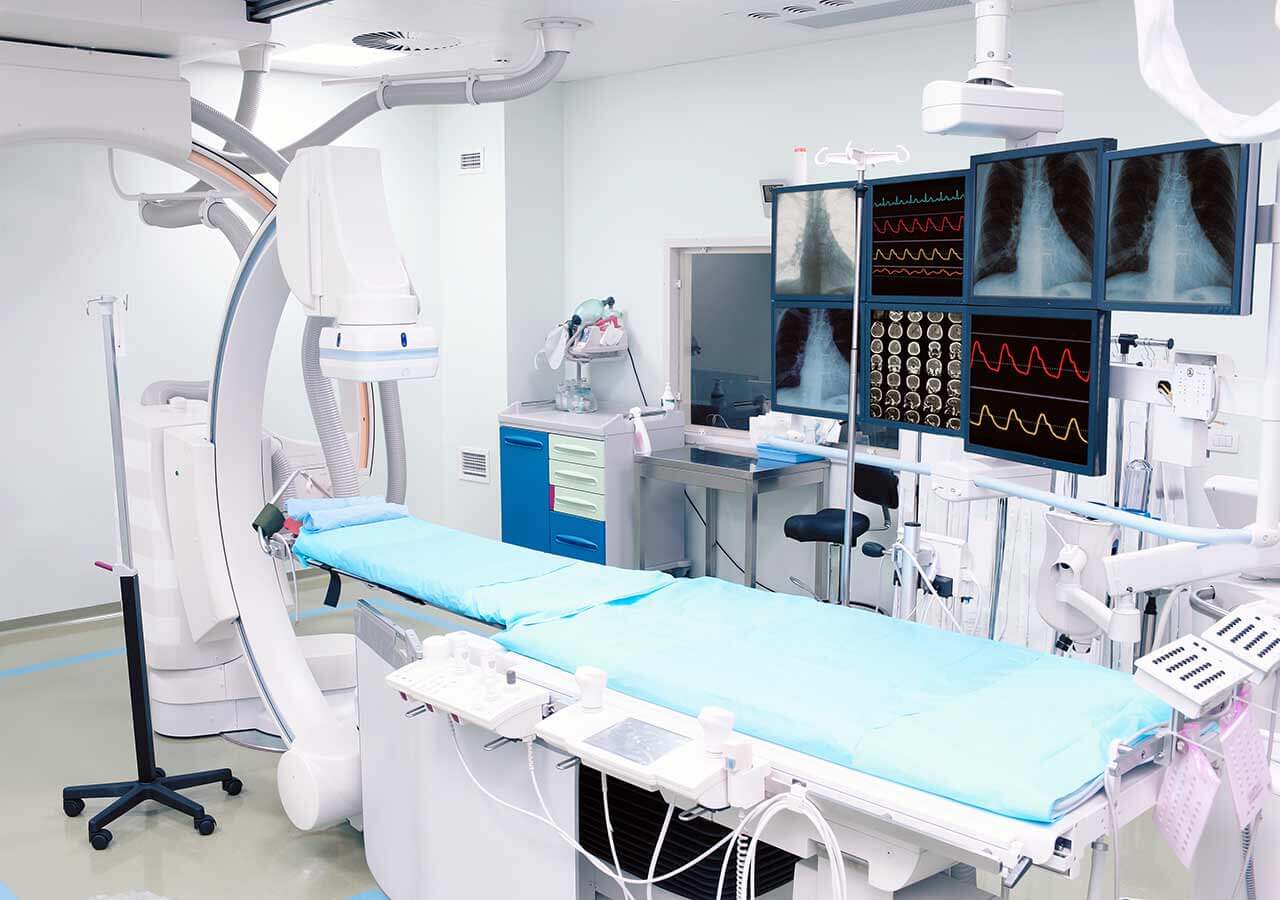
The program includes:
- Initial presentation in the clinic
- clinical history taking
- review of medical records
- physical examination
- laboratory tests:
- complete blood count
- biochemical analysis of blood
- TSH-basal, fT3, fT4
- tumor markers
- inflammation indicators (CRP, ESR)
- indicators of blood coagulation
- ultrasound scan
- chemotherapy (1 course)
- cost of required medications
- nursing services
- consultations of related specialists
- treatment by head physician and leading experts
- explanation of individual treatment plan
How program is carried out
During the first visit, the doctor will conduct a clinical examination and go through the results of previous laboratory tests and instrumental examinations. After that, you will undergo an additional examination, including laboratory assessment of liver and kidney function, ultrasound scan. Based on the received results, the doctor will elaborate the chemotherapy regimen. If necessary, related medical specialists will be involved in the elaboration of a treatment regimen (tumor board).
Chemotherapy is carried out as the day hospital procedure, without mandatory admission to the hospital. After the placement of a venous catheter, you will stay in a comfortable ward. An infusion system will be connected to the catheter, through which the required drug or a drug combination will be administered. All drugs are administered by intravenous drip, slowly, so the total duration of the infusion can be up to several hours. All this time, doctors and nurses will monitor your health condition closely.
After the course of chemotherapy, you will stay under medical supervision in the ward for a few more hours. If your general condition is good, your doctor will allow you to leave the hospital. You will receive the medical report with detailed recommendations regarding further treatment. In the future, you will be able to have a distant consultation with your attending physician and schedule the next course of chemotherapy, if necessary.
Required documents
- Medical records
- MRI/CT scan (not older than 3 months)
- Biopsy results (if available)
Service
You may also book:
 BookingHealth Price from:
BookingHealth Price from:
About the department
According to the Focus magazine, the Department of Hematology and Oncology at the University Hospital Jena ranks among the top German medical facilities of this kind!
The department offers the full range of diagnostics and treatment of oncological and hematological diseases in adults. To achieve the best result, there is maintained close cooperation with all specialists in the related fields. The interdisciplinary tumor boards serve for a detailed discussion of each clinical case and the development of an optimal treatment strategy. The department has strict quality management system. It is also certified according to DIN EN ISO 9001: 2008. The Chief Physician of the department is Prof. Dr. med. Andreas Hochhaus.
The treatment of patients is provided both on an inpatient and outpatient basis. Of particular interest is the treatment of malignant systemic diseases (for example, leukemias, lymphomas, multiple myeloma, chronic myeloid leukemia, myeloproliferative diseases) and solid tumors (mainly gastrointestinal tumors, respiratory tract tumors and soft tissue tumors (sarcomas)), including autologous and allogeneic stem cell transplantation. The department participates in the national and international research programs for the optimization of malignancy treatment, so the patients have access to the very latest therapeutic developments. In addition, the tasks of the department's doctors include the treatment of benign blood diseases.
The department's doctors prefer an individual approach to each clinical case, they spend a lot of time talking to patients and their relatives in order to establish trusting relationships and provide all kinds of moral support. Also, if necessary, the specially trained psychologists provide qualified psycho-oncological care.
The service range of the department includes:
- Diagnostic options
- Physical examination, detailed history
- Imaging diagnostics, including positron emission tomography (in collaboration with the Department of Nuclear Medicine)
- Target genetic diagnostics
- Diagnostics within the specialized Hematology Laboratory
- Molecular haemato-oncology diagnostics
- Oncomarkers
- All modern therapies for oncological and hematological diseases (for example, chemotherapy, targeted therapy, radiation therapy, immunotherapy, etc.) in accordance with the guidelines of the German Association of Hematology and Oncology
- "Second opinion" in difficult clinical cases
- Treatment within the clinical trials
- Interdisciplinary tumor boards
- Alternative medicine methods (naturopathy and integrative oncology) within a specialized outpatient clinic
- Other medical services
Curriculum vitae
Academic Activities
- 2010 - 2019 Deputy Dean for Research, Faculty of Medicine, Friedrich Schiller University Jena.
- 2010 - 2019 Council Member of the Medical Faculty.
- 2015 - 2019 Commission Spokesman on Research Strategy of the Medical Faculty.
- 2010 - 2013 and 2016 - 2019 Member of the Senate Research Committee, Friedrich Schiller University Jena.
- 2013 - 2016 Deputy Member of the Senate Research Committee of Friedrich Schiller University Jena.
- 2009 Invitation to the position of W3 Professor in Internal Medicine/Hematology and Internal Oncology, Friedrich Schiller University Jena.
- 2007 - 2009 Head of the Section of Leukemia Research in the Department of Internal Medicine III, Mannheim Hospital at the University of Heidelberg.
- 2007 Invitation to the position of W3 Professor of the Josep Carreras Foundation in Leukemia Research, Mannheim Medical Faculty, University of Heidelberg.
- 2003 Extraordinary Professor, University of Heidelberg.
- 1997 Habilitation in Internal Medicine, Mannheim Medical Faculty, University of Heidelberg.
- 1994 - 1995 Scholar of the Mildred Schee Foundation, Royal School of Postgraduate Studies, Hammersmith Hospital, London, UK (Prof. Dr. med. J.M. Goldman).
- 1998 PhD thesis defense with honors, Medical Academy Erfurt.
- 1979 - 1985 Study of Human Medicine at the University of Leipzig and Medical Academy Erfurt.
Professional Career
- 2010 Representative of the University Cancer Center at the University Hospital Jena.
- 2010 Head of the Department of Hematology and Oncology at the University Hospital Jena.
- 2009 Acting Head of the Department of Internal Medicine II at the University Hospital Jena.
- 2009 Optional advanced training in Palliative Care.
- Since 2008 Permission for advanced training courses in Hematology and Internal Medicine.
- 2008 - 2009 Acting Head of the Department of Internal Medicine III, University Hospital Mannheim.
- 2002 ESMO Certification in Medical Oncology.
- 1994 Specialization in Hematology and Internal Medicine.
- 1990 - 1997 Medical Specialist, Department of Internal Medicine III, Mannheim Medical Faculty, University of Heidelberg (Prof. Dr. med. R. Hehlmann).
- 1989 Board certification in Internal Medicine.
- 1985 - 1989 Medical Assistant, Department of Internal Medicine, Medical Academy Erfurt (Prof. Dr. G. Panzram).
Memberships and Positions in Scientific Societies and Organizations
- Since 2018 Saxon Academy of Sciences in Leipzig.
- Since 2014 Nonprofit Academy of Sciences in Erfurt.
- Since 2014 Working Group "Healthy Lifestyle and Health", Thuringian Innovation Strategy "RIS3 Thuringia".
- Since 2013 Expert Committee on Cancer Treatment Researches of the German Cancer Society Foundation.
- Since 2009 Thuringian Cancer Society (since 2011 Chairman).
- Since 2009 East German Hematology and Oncology Study Group (OSHO).
- Since 2002 Working Group on Internal Oncology (2007 - 2013 Board Member).
- Since 2002 American Society of Clinical Oncology (ASCO).
- Since 2001 German Cancer Society (since 2012 Board Member).
- Since 1995 International Association for Comparative Research on Leukemia and Related Diseases (IACRLRD), 2005 - 2013 and, since 2017, World Committee Member.
- Since 1995 American Society of Hematology (ASH).
- Since 1995 European Hematology Association (EHA), 2013 - 2015 Member of the Scientific Advisory Board.
- Since 1994 South German Hemoblastosis Group (SHG), 1999 - 2005 Vice-Chairman, 2005 - 2010 Chairman).
- Since 1992 German Society of Internal Medicine (DGIM).
- Since 1991 German Society for Hematology and Medical Oncology (DGHO), 2003 - 2012 Member of the Advisory Council, 2016 Congress President.
Editorial Collaboration
- Since 2014 Chief Editor (since 2003 Editorial Board Member).
- Since 2014 Editorial Member, Bone Marrow Transplantation.
- Since 2015 Deputy Editor, Journal of Cancer Research and Clinical Oncology (since 2010 Editorial Board Member).
- Since 2011 Editorial Board Member of the Blood Cancer Journal.
- 2010 - 2013 Editorial Board Member, BLOOD.
- Since 2010 Editorial Board Member, Der Onkologe.
- Since 2008 Column Editor, Annals of Hematology.
- 2006 - 2016 Editorial Board Member, Haematologica.
- Since 2005 Editorial Board Member, Oncology Research and Treatment, previously Onkologie.
Patents
- 2004 Eleven BCR-ABL tyrosine kinase mutations in the treatment with imatinib.
- Patent USP 327389, 328740, 347351 of the European Patent Office №02782829.2-2405-EP0211144.
- 2010 Organic compounds. Application number: 20110129852.
- 2009 Mutations in the domains of Abl-kinase. Application number: 20100021921.
- 2009 Mutations in the domains of Abl-kinase. Application number: 20100021920.
- 2008 Methods for the identification and treatment of patients with mutations in Bcr/Abl kinase polypeptides. Application number: 20090306094.
- 2008 Organic compounds. Application number: 20090191606.
- 2008 Mutations in Abl-kinase domains. Application number: 20090117641.
- 2006 Organic compounds. Application number: 20060148058.
- 2002 Mutations in Abl-kinase domains. Application number: 20050202519.
- 2002 Organic compounds. Application number: 20030170851.
Research Focuses
- Clinical and translational examinations of leukemia and other types of cancer.
- Treatment mechanisms of resistance.
- Tyrosine kinases as therapeutic target.
- Aging and age-related diseases.
Photo of the doctor: (c) Universitätsklinikum Jena
About hospital
According to the prestigious Focus magazine, the University Hospital Jena regularly ranks among the top German medical facilities!
The hospital has positioned itself as a multidisciplinary medical facility with a long history of more than 200 years. Since its foundation, the hospital has been constantly developing and modernizing, thanks to which nowadays it offers patients the highest level of treatment in Germany based on the use of innovative technologies and the very latest therapeutic techniques. The hospital consists of 26 specialized departments and 25 research institutes. It treats more than 53,600 inpatients and about 274,000 outpatients every year. The staff of the hospital includes more than 5,600 competent doctors.
The extensive resources of the university hospital, high treatment standards, and the introduction of new research developments provide first-class treatment in Germany meeting the stringent international standards. The hospital has an excellent reputation not only in Germany, but also far beyond its borders, due to which it accepts a large number of foreign patients for the diagnostics and treatment.
Despite the technical progress and the availability of accurate computerized systems, the patient’s physical health and emotional state is the main value of each employee of the hospital, since some diagnoses cause emotional distress in patients. The doctors of the hospital believe that the key to a successful result is a comprehensive and individual approach, so they spend a lot of time talking with patients, listen carefully to all their wishes and support at all stages of the therapeutic process. All this in combination with high-precision diagnostic techniques and the very latest types of therapy forms a solid basis for the achievement of an optimal treatment result.
Photo: (c) depositphotos
Accommodation in hospital
Patients rooms
The patients of the University Hospital Jena live in comfortable single and double rooms made in a modern design. Each patient room is equipped with an ensuite bathroom with shower and toilet. The room has enough space to store personal belongings, as well as a table and chairs for receiving visitors. A bedside table can be converted into a table so that patients can eat right in their bed. Each room has a TV, and there is also access to the Internet. In addition, the hospital offers enhanced-comfort rooms.
Meals and Menus
The patient and his accompanying person have a daily choice of three menus. If for some reason the patient does not eat all the foods, he will be offered an individual menu. Please inform the medical staff about your dietary preferences prior to the treatment.
Further details
Standard rooms include:
Religion
Religious services are available upon request.
Accompanying person
During the inpatient program, an accompanying person may stay with you in a room or at the hotel of your choice.
Hotel
During the outpatient program, you can live at a hotel of your choice. Managers will help you to choose the most suitable options.





